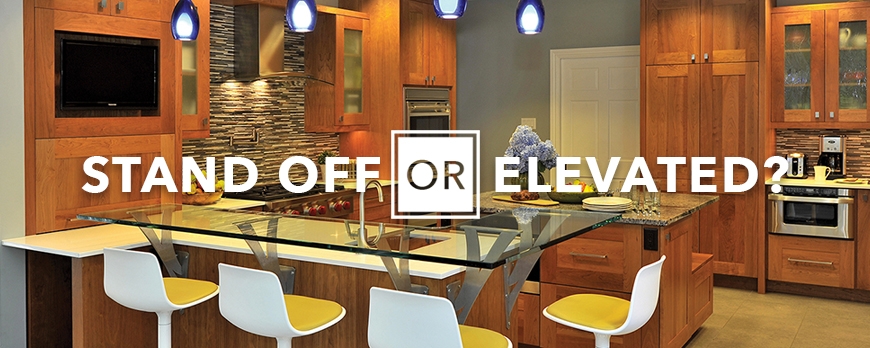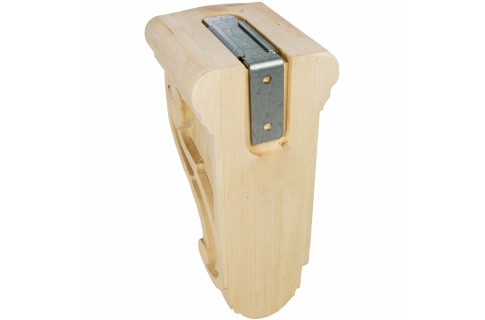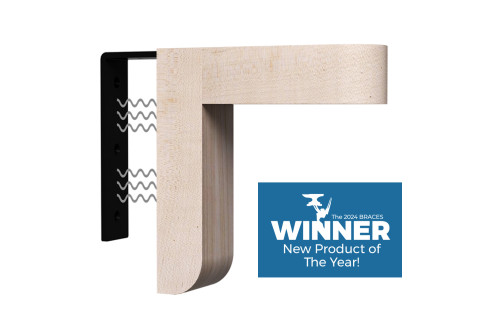Stand-off or Elevated?
Home remodeling and new builds are growing larger than ever. A recent Home Advisor poll of over 1,225 industry professionals reflected that 55% of remodelers and contractors in the roofing, landscape, and kitchen and bath industries are seeing an increase in both average spending and size of their clientele’s projects as of the close of 2018’s first quarter, with an average growth of 6-10%. These changes are most clear in the kitchen, where ample space is king. Counter space to prep and cook, floor space to entertain, and the demand for luxury, premium products, like designer finishes, smart technology, and aging-in-place accessibility, have resulted in the rise of new kitchen innovations. Many of these products address user needs, but with only so much space in a home, how do you create extra space in a kitchen?
The answer is found through the use of secondary countertops, which add valuable square inches to serving counters without compromising floor space. A contractor can use either an elevated brace or a stand-off bracket or post to add to a client’s countertop space, but selecting the right profile and design comes down to an individual’s priorities and desires. How do you choose? Which one may be right for your design? And what, in layman’s terms, is really the difference?
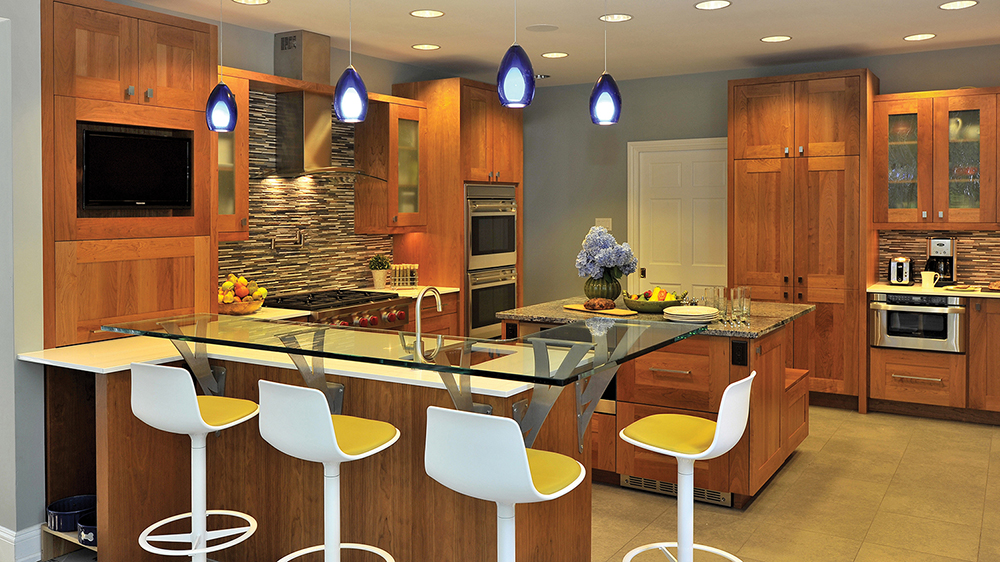
That last question may be the easiest to resolve. While a countertop stand-off is mounted to the subsurface parallel to the countertop it’s meant to support, an elevated brace is mounted perpendicularly. More specifically, the stand-off is mounted to your primary surface—the countertop—in order to support your secondary surface—another countertop, whether stone, metal, wood, or glass, placed directly above. The elevated support is mounted from below to cabinetry or a wall in order to elevate the secondary surface up and away from the primary surface.
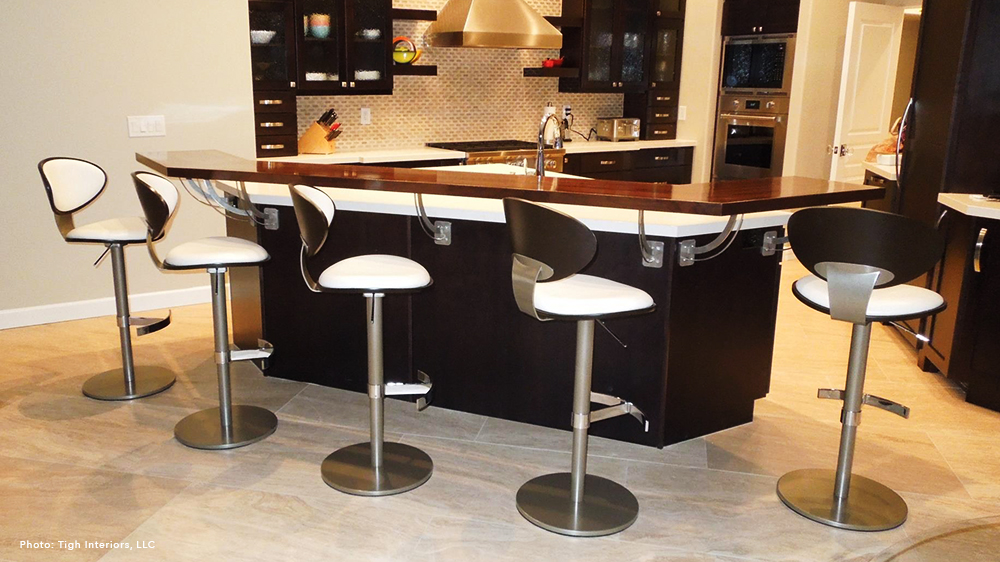
Due to these unique installations, each has different requirements. While the countertop standoff must have a subsurface that is parallel to the countertop it’s meant to support, the elevated support can be mounted to nearly any vertical surface, allowing for the creation of ultra-modern, wall-mounted desks or counters in co-working spaces or offices. Elevated countertops are infinitely useful in hotels, restaurants and medical suites, where they can be used to create sleek concierge, maître d', or receptionist desks, amplifying the business’ ability to serve clientele.
Countertop stand-offs increase countertop space less effectively, but conserve more floor space, making them ideal in areas where there may be a high volume of foot traffic, such as restaurant serving areas, indoor entertainment spaces, and box suites in multiple venues. Many sporting stadiums opt to use this style of elevated surface, due to the sleek, sturdy, nearly athletic look of most steel post supports. The Bank of America Stadium, housing most notably the Carolina Panthers NFL team, remodeled their box suites to include more food service space, including multiple elevated surfaces with the use of post supports. Other sporting arenas, such as tennis or racquet clubs, horse arenas, fairgrounds, and derby box seating, are also perfect spaces in which to use stand-off supports.
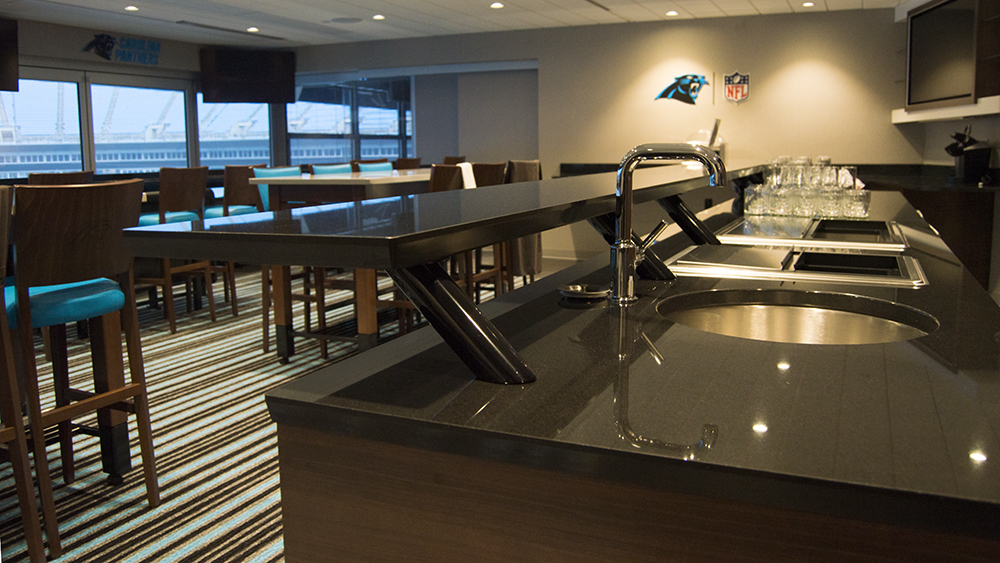
Whatever design you choose, know that it comes with a great deal of flexibility. Both elevated supports and countertop stand-offs can be paired with stone, glass, metal, or wood secondary surfaces making desirable looks, such as teak wood above a matte stone surface or custom glass above granite, easily attainable.
For more information, visit www.FederalBrace.com or email customerservice@federalbrace.com. Call us toll-free during business hours EST at 1(877)353-8899 to speak with a customer service member or product specialist.
